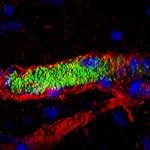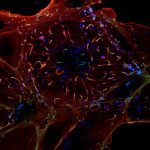Présentation
One of the major challenges in bacterial infectious disease relates to infections taking place in the bloodstream (septicemia). Despite availability of antibiotics these types of infections lead to extremely severe conditions such as septic shock or meningitis requiring a better understanding of mechanisms of disease. The common denominator of these conditions is the interaction of pathogens with the blood vessels and the subsequent alteration of the vessels biological properties. The aim of this project is to understand how such pathogens cause these dramatic alterations. This raises both biomedical and basic scientific questions that will be addressed in this project. How can these bacteria survive and multiply in the bloodstream? How do they interact with the endothelium? How do they affect vessel integrity and homeostasis? How can bacteria exit the vessel lumen to access the cerebrospinal fluid? Neisseria meningitidis is used as an experimental model in this project because it is a stereotypical example of septicemia and meningitis causing pathogen and because of the availability of experimental tools for its genetic manipulation. A central hypothesis of the project is that the ability of this bacterium to bind to endothelium and proliferate in aggregates inside the microvasculature, a process we refer to as vascular colonization, is central to the disease process. Our experimental approach is to generate innovative tools to reproduce the specific environment encountered by the bacteria in the bloodstream: blood flow generated shear stress, the specific geometry of the microcirculation, the human endothelium and its tissue environment. To meet these challenges we are using a multidisciplinary approach exploiting recent findings from the fields of physics, chemistry, microbiology, vascular biology and immunology. With this work we hope to unravel important pathophysiological mechanisms with implication for the management and treatment of sepsis and meningitis.


